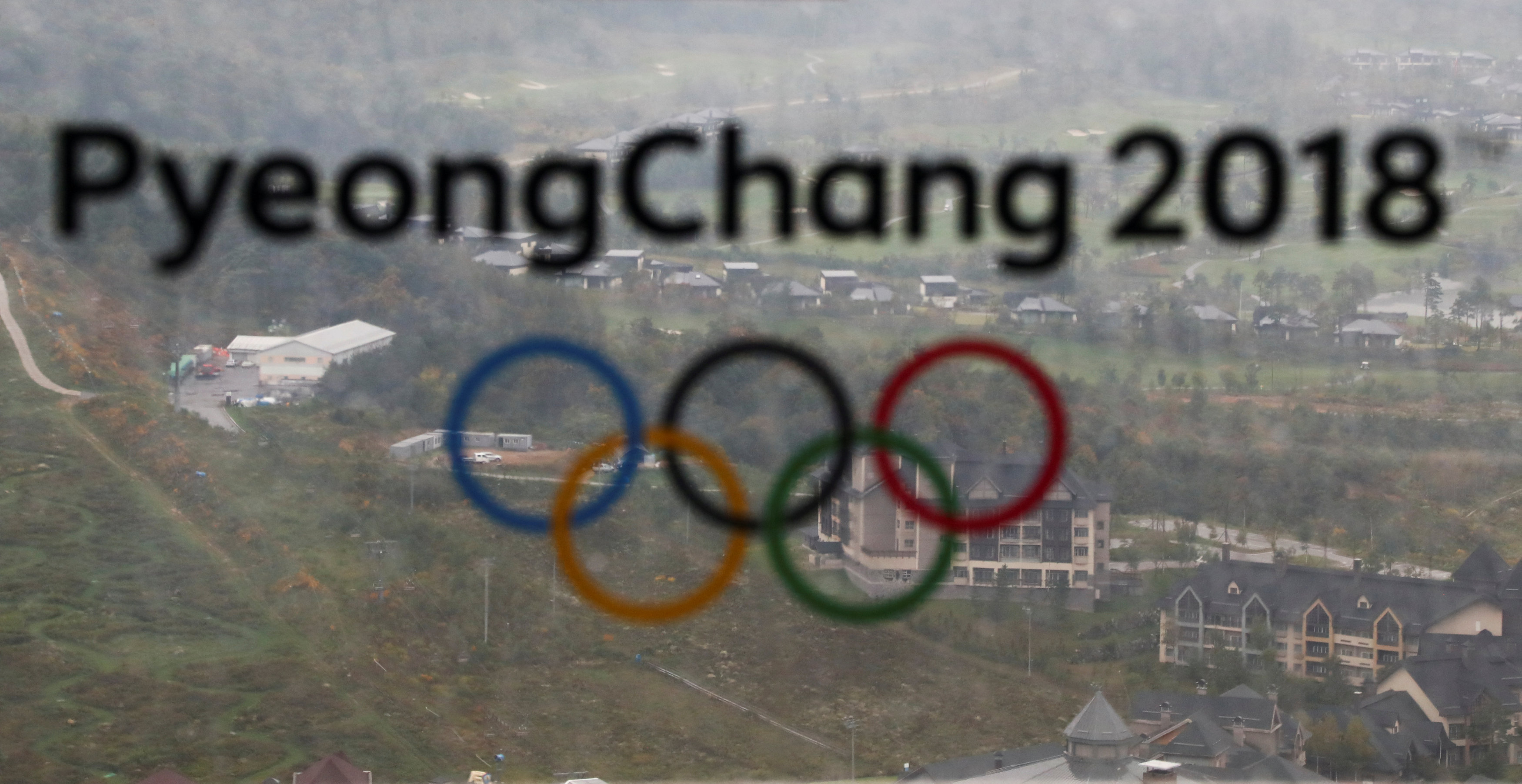FILE PHOTO: The PyeongChang 2018 Winter Olympic Games logo is seen at the the Alpensia Ski Jumping Centre in Pyeongchang, South Korea, September 27, 2017. REUTERS/Pawel Kopczynski/File Photo
MELBOURNE (Reuters) – Having felt “angry” to have to compete with Russian dopers, Australia’s race walking champion Jared Tallent hopes the International Olympic Committee will heed calls from clean athletes to exclude the nation from the Winter Games.
The IOC is set to decide later on Tuesday whether to ban Russia from Pyeongchang over alleged institutional doping, a decision that will be watched closely by athletes and anti-doping authorities.
Moscow has vehemently denied state involvement and claimed the allegations are politically motivated.
Four years after coming second behind a Russian drug cheat at the London Olympics, Tallent was belatedly awarded the 50km walk gold last year after Sergey Kirdyapkin was stripped of the medal.
The 33-year-old Australian remains highly suspicious of the strength of Russia’s anti-doping programme, however, and doubtful the country can move on from the scandals that have engulfed it in recent years.
“As a clean athlete, I would like to see them banned from the Winter Olympics,” he told Reuters in a phone interview on Tuesday. “I think the evidence has been pretty clear around what they did over the leadup to the last (Rio) Olympics.
“It would be disappointing to see them allowed at Pyeongchang.
“I don’t even like the fact they let them compete as neutral athletes. It’s still allowing Russians into competition.”
Russia’s anti-doping agency (RUSADA) has been suspended since a 2015 report by a World Anti-Doping Agency (WADA) commission found evidence of state-sponsored doping in Russia.
A further WADA report last year found more than 1,000 Russian competitors in over 30 sports had been involved in a conspiracy to conceal positive drug tests over a five-year period.
Last month, the IOC’s own commission has banned more than 20 Russian athletes from the Olympics for life over doping violations at the 2014 Winter Games that Russia hosted in Sochi.
The Kremlin has continued to deny any culpability, however, and said it would defend the “legitimate interests” of its Sochi athletes who were disqualified and had their medals stripped.
WADA has demanded Russia own up to state-sponsored doping as a condition of lifting its suspension on RUSADA, but Tallent could not imagine any admission would come.
“They’re just trying to save face to their people,” he said.
“It would be a pretty devastating to admit to their people that they’ve sponsored doping.
“But they aren’t going to move forward in sport until they admit they were involved. I don’t think they will move forward.”
The 15-member IOC Executive Board can opt to issue a blanket ban on Russian athletes, or allow them to compete in South Korea as neutrals.
They could also defer to international sports federations to decide on their participation as they did at Rio.
Although Russia was barred from athletics and weightlifting at the summer Games, it was able to send around 70 percent of its original 387-strong squad.
Tallent felt the IOC missed a chance to make a strong statement at Rio but was pleased the International Association of Athletics Federations (IAAF) maintained a hard line.
The IAAF banned the Russian athletics federation in 2015 and confirmed last week that it would continue its suspension.
Russia’s race walking programme has been notorious for producing drug cheats, and Tallent said his sport was better off without the nation competing.
“There’s certainly less suspicion around competition, I can tell you,” said the four-times Olympic medallist.
“Athletes feel like they’re competing in a cleaner field.
“Particularly in my event, there were always suspicions and it did make you quite angry when you knew you were up against athletes who were playing dirty.”
(Editing by Greg Stutchbury)
Copyright 2017 Thomson Reuters. Click for Restrictions.



